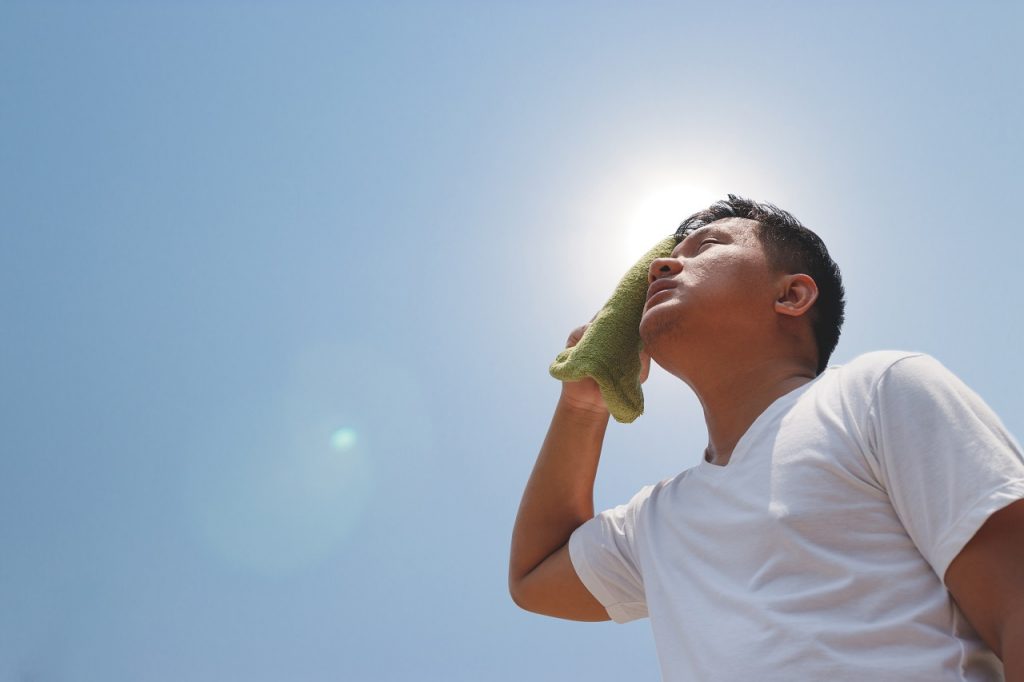 Indian summers were always hot, but now they have turned lethal. Studies indicate that temperatures across many districts in India will exceed by two degree Celsius by the end of the next two or three decades. So our huge population is likely to be exposed to the risk of summer hazards. Hence, I feel the need to talk about the most common summer health hazards.
Indian summers were always hot, but now they have turned lethal. Studies indicate that temperatures across many districts in India will exceed by two degree Celsius by the end of the next two or three decades. So our huge population is likely to be exposed to the risk of summer hazards. Hence, I feel the need to talk about the most common summer health hazards.
Common Summer Health Hazards
Here are the 3 most common summer health hazards you need to watch out for and how you can prevent/manage them.
1. Dehydration
It occurs when more water and fluids leave the body than enter it. Even low levels of dehydration can cause symptoms like increased thirst, fatigue, blurred vision, headache and muscle cramps. We all know that the human body is roughly 75% of water and without this water it cannot survive.
How can you prevent it?
Always make sure you drink lots of water during these scorching summer months (approx 35ml per kg body weight). Apart from this, drinks for replacing body fluids can be coconut water, aloe vera juice, amla juice, fruit juice, vegetable juice, buttermilk, sugarcane juice or an electrolyte drink. But fruit or electrolyte juice will be better if diluted to half the strength with water to moderate sugar or salt intake from those drinks. Drinks with alcohol or caffeine should be avoided as these dehydrate the body.
2. Heat Stroke
Sun stroke or heat stroke occurs from extreme exposure to heat and sunlight and is considered as a medical emergency. Symptoms of heat stroke include dizziness, nausea, headache, vomiting and even fainting.
How can you prevent it?
Choose lightweight, light-colored, loose fitting and cotton clothing. Stay indoors as much as possible and schedule outdoor activities carefully. Most importantly, take a good amount of fluids and hydrate well before stepping out. If caught with mild sunstroke, settling teas like chamomile, peppermint, fennel seeds or our own aam panna also helps best.
3. Food Poisoning
Summer heat raises the risk of food borne diseases. Food poisoning cases are one of the most common summer health hazards because bacteria grow faster in warmer weather. Symptoms of food poisoning include cramps, nausea, vomiting and diarrhea.
How can you prevent it?
To avoid food poisoning, we simply have to be careful about what we put in our mouth. Furthermore, we should make sure that we eat only well cooked food and try to consume it as soon as possible once it’s cooked. Eat only fresh cut salads and fruits when eating raw. Do not leave food long outside before refrigerating. Try to refrigerate all the leftover food as soon as steam stops rising from it.
Ample rest, good hydration, eating light and, last but not the least, moving your body adequately helps us stay fit and healthy from summer health hazards. Prevention remains the key, as lack of awareness is one of the main reasons for the near fatal result of these hazards.
We hope this article helps you enjoy a healthy summer. Want us to cover some more hazards? Did we miss out on something? Let us know in the comments below!
Get more summer safety tips here or speak directly to a GOQii Coach by subscribing for Personalised Health Coaching here.
#BeTheForce




Very helpful
Indian summers have always been scorching, but they’ve recently become dangerous. Several Indian areas are expected to see temperatures that are two degrees higher than average by the end of the next two or three decades, according to studies. This means that a large percentage of our people will likely be at danger from summertime perils. Therefore, I think it’s important to discuss some of the most typical summertime health concerns.
We appreciate you sharing the important information on fitness and nutrition! Exercise properly to get the best results!
Brilliant post, Aruna! Indeed, dehydration, heat strokes, and food poisoning are some of the common summer health hazards. Another problem caused in summer is skin damage caused due to too much exposure to ultraviolet radiation. A good way to prevent and treat UV-induced skin damage is to have good-quality probiotics in any form.